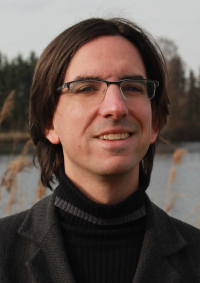05-MCM-ST Special Topics in Mineralogy and Materials Science
Representative Michael Fischer
This module will address advanced topics of relevance to mineralogy and materials science. Emphasis will be on layered silicates (especially clay minerals) and framework silicates (especially zeolites), which are used in technical mineralogy and numerous other applications. Lectures will be complemented by synthesis and characterization experiments.
(1) Layered silicates
(a) Theory: Structure, geological relevance, and important applications of layered silicates (especially clay minerals)
(b) Practice: Phase identification of clay minerals using powder X-ray diffraction (PXRD)
(2) Zeolites
(a) Theory: Crystal chemistry of zeolites, natural occurrences of zeolite minerals, technological applications of zeolites in ion exchange, adsorption, and catalysis, computational modelling of zeolites
(b) Practice: Hydrothermal synthesis of zeolites and characterization of synthesis products
1) The students understand the key structural features of layered silicates and zeolites and know about their geological relevance.
2) The students understand important applications of these materials, and they can explain how the microscopic structure determines the macroscopic properties relevant for these applications.
3) The students learn to apply PXRD methods to characterize layered silicate samples.
4) The students learn to apply synthesis and characterization methods that are important in the field of zeolite science.
Relationship to Sustainable Development Goals: It will be highlighted how the replacement of phosphate-based water softeners by zeolites in laundry detergents has improved water quality (SDG 6 - Clean Water and Sanitation). Other relations of zeolite applications to SDGs will also be pointed out where relevant.
Course Type 1: Lecture, Exercise (L+E) 2.0 SWS ( 28.0 h)
Course Type 2: Practical Laboratory (LP) 2.0 SWS ( 28.0 h)
Tutorial(s): -
Workload:56.0 h presence time
84.0 h self-study
40.0 h exam workload
180 h total workload
combination exam
exam elements: 1
SL: 1
100 % written exam
There will be a graded exam. To finish the lab course, the students need to prepare a lab report that will not be graded.
1) Slides will be distributed during the course
2) Synthesis recipes and instructions for characterization will be distributed during the lab course
Basic Data
Master Materials Chemistry and Mineralogy
Module Type
Elective
First Year of Study
Offering Departement
FB5 Geosciences
Sommersemester
Course LanguageEnglish
6 CP
4 SWS
Contact

Contact
PD Dr. Michael Fischer
GEO 3340
 uni-bremen.de
uni-bremen.deContact

Contact
PD Dr. Michael Fischer
GEO 3340
 uni-bremen.de
uni-bremen.de
